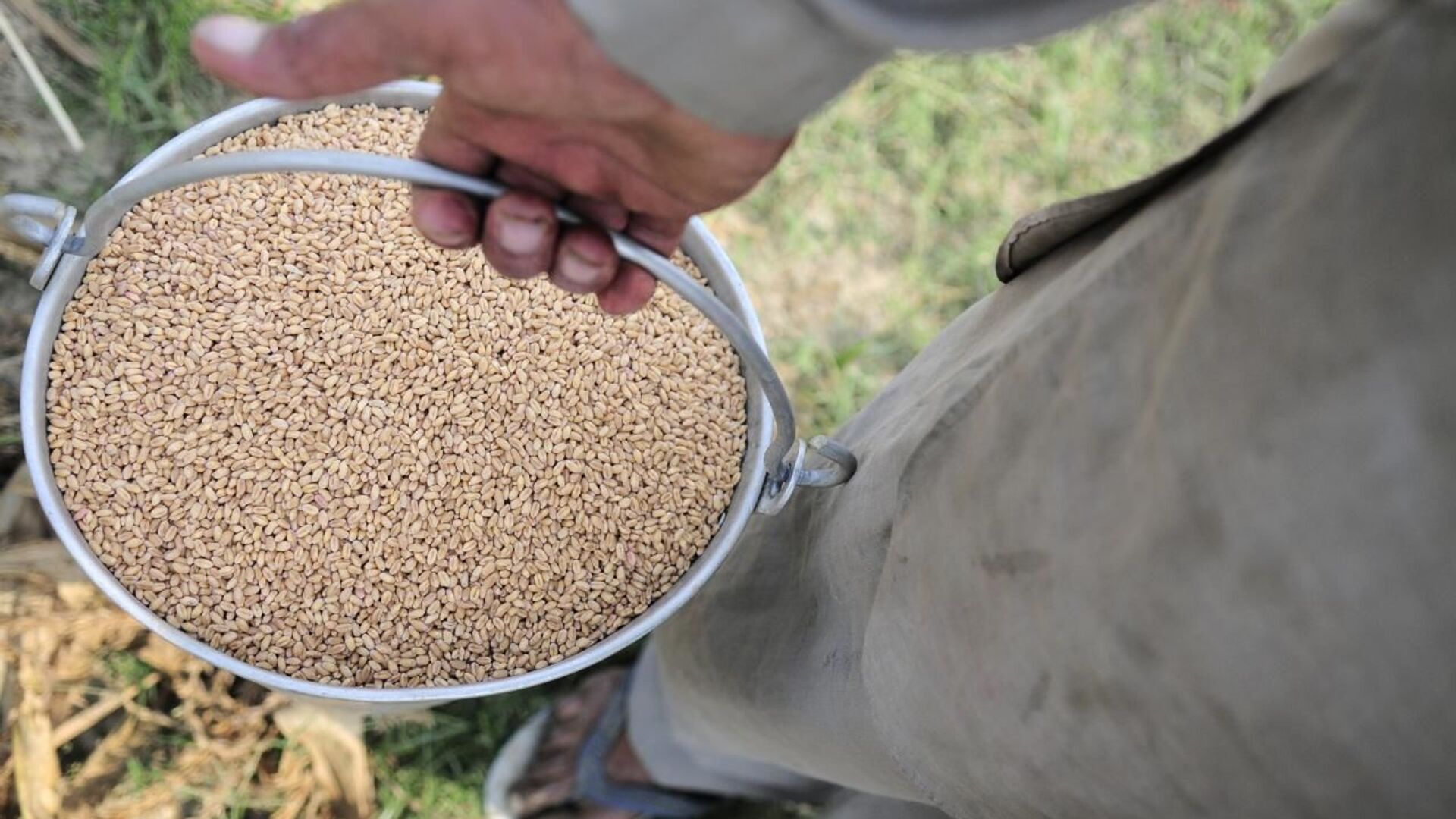https://sputnikglobe.com/20220518/think-tank-says-unlikely-any-country-can-offset-wheat-export-losses-after-indias-ban-1095607964.html
Think Tank Says Unlikely Any Country Can Offset Wheat Export Losses After India's Ban
Think Tank Says Unlikely Any Country Can Offset Wheat Export Losses After India's Ban
Sputnik International
MOSCOW (Sputnik) Kirill Krasilnikov - It is highly unlikely that there is a country that could fill the current gap in global food supply caused by the ongoing... 18.05.2022, Sputnik International
2022-05-18T13:23+0000
2022-05-18T13:23+0000
2022-07-19T10:43+0000
world
wheat
https://cdn1.img.sputnikglobe.com/img/07e5/04/17/1082708865_0:65:1280:785_1920x0_80_0_0_50cf95df484a1ed620f74c9cd323cec4.jpg
"Canada and Southern Hemisphere countries (Australia, Argentina) might step in to compensate but for Canada (Spring wheat) adjustment will be feeble as expanded planting should have started may come too late to make much impact, while Australia and Argentina only plant 20% of their wheat production in May-June (to harvest in Oct-Jan). Moreover, Argentina has also imposed a ban on wheat exports. Hence chances are slim that any of these contexts will compensate for the drop in wheat exports from Ukraine and Russia," Vos said.According to the expert, the crisis should be used by nations to improve food security through increased and sustainable production, as well as by diversifying both domestic production and trade channels.Last week, India imposed a ban on wheat exports, citing "a sudden spike in the global prices of wheat arising out of many factors" as the primary reason for the restriction. New Delhi's announcement came as a sudden U-turn since Indian Prime Minister Narendra Modi told US President Joe Biden in April that India, the second-largest wheat producer in the world, could increase its food supplies.According to the UN Food and Agriculture Organization, Russia and Ukraine were among the top global exporters of various types of staple foods, including wheat and corn, in 2021, while Russia was also a leading exporter of nitrogen fertilizers, the second major supplier of potassium fertilizers and the third largest supplier of phosphorus fertilizers. Ukraine's food production is now being threatened by factors such as disruption of logistics, loss of access to agricultural lands, labour shortages, damage to crops due to hostilities, and destruction of food system assets and infrastructure.
Sputnik International
feedback@sputniknews.com
+74956456601
MIA „Rossiya Segodnya“
2022
Sputnik International
feedback@sputniknews.com
+74956456601
MIA „Rossiya Segodnya“
News
en_EN
Sputnik International
feedback@sputniknews.com
+74956456601
MIA „Rossiya Segodnya“
Sputnik International
feedback@sputniknews.com
+74956456601
MIA „Rossiya Segodnya“
wheat
Think Tank Says Unlikely Any Country Can Offset Wheat Export Losses After India's Ban
13:23 GMT 18.05.2022 (Updated: 10:43 GMT 19.07.2022) MOSCOW (Sputnik) Kirill Krasilnikov - It is highly unlikely that there is a country that could fill the current gap in global food supply caused by the ongoing conflict in Ukraine after India decided to ban its exports, Rob Vos, the director of the Trade, Markets and Institutions Division at the International Food Policy Research Institute, said.
"Canada and Southern Hemisphere countries (Australia, Argentina) might step in to compensate but for Canada (Spring wheat) adjustment will be feeble as expanded planting should have started may come too late to make much impact, while Australia and Argentina only plant 20% of their wheat production in May-June (to harvest in Oct-Jan). Moreover, Argentina has also imposed a ban on wheat exports. Hence chances are slim that any of these contexts will compensate for the drop in wheat exports from Ukraine and Russia," Vos said.
According to the expert, the crisis should be used by nations to improve food security through increased and sustainable production, as well as by diversifying both domestic production and trade channels.
"Unfortunately, we are seeing many countries trying to protect food security by restricting exports or, in the case of food importers, lowering tariffs on imports. We know from past experience, including the global food price crises of 2007-8 and 2010-11, that such trade measures only exacerbate the problem by driving up prices in global markets, which will also hit consumers in the countries conducting such 'selfish' policies," Vos stated.
Last week,
India imposed a ban on wheat exports, citing "a sudden spike in the global prices of wheat arising out of many factors" as the primary reason for the restriction. New Delhi's announcement came as a sudden U-turn since Indian Prime Minister Narendra Modi told US President Joe Biden in April that India, the second-largest wheat producer in the world, could increase its food supplies.
According to the UN Food and Agriculture Organization, Russia and Ukraine were among the top global exporters of various types of staple foods, including wheat and corn, in 2021, while Russia was also a leading exporter of nitrogen fertilizers, the second major supplier of potassium fertilizers and the third largest supplier of phosphorus fertilizers. Ukraine's food production is now being threatened by factors such as disruption of logistics, loss of access to agricultural lands, labour shortages, damage to crops due to hostilities, and destruction of food system assets and infrastructure.


